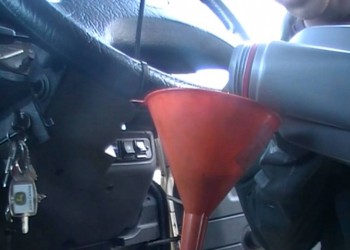Purchasing a brand new car and having the opportunity to be the first person to drive it is a truly remarkable experience. If you have a new 2016 Land Rover LR4, you are in for an amazing experience. The 2016 LR4, more popular by the name Discovery, provides a great off-road experience. This nearly 3-ton beast features a supercharged V6 engine, which gives you ample power whenever you need it.
But there is one very important thing that you should know – you have to break-in your new 2016 Land Rover LR4 before you can unlock its full potential and take it for a true off-road spin.
Don’t worry, it’s not one of those overly complicated things. Here are several tips to help you learn how to break in the 2016 Land Rover LR4.
How Long is the Break-in Period?
Land Rover uses very sophisticated production and manufacturing methods to ensure the quality and reliability of its vehicles. The same goes for the 2016 Land Rover LR4.
High-precision manufacturing methods ensure that everything is assembled perfectly and that every part is where it needs to be. But there are many moving parts that have to be broken-in relative to each other. This specifically applies to the engine.
If you want your engine to serve you as long as possible, you should abide by the break-in instructions. The most important thing to know is that you should stick to the rules we are going to mention during the first 2,000 miles (3,000km).
During this time, the engine is most sensitive, and you will have to take special care of your vehicle to ensure a long lifecycle and avoid common Land Rover malfunctions. Here is what you have to do.
The Accelerator Pedal Should Never Be Fully Pressed
It’s essential not to overwork the engine while its moving parts are fresh out of the factory. This can cause a break, permanent damage to the motor, decrease its performance, increase fuel consumption, or lead to overheating. This is why you should be mindful of how far you press that accelerator pedal.
Never, under any circumstance press the accelerator pedal to the floor. This will expose the engine to too much stress during the break-in period, which may lead to engine problems. Wait for the 2,000 miles marker before you do so to ensure the longevity of the engine.
Wait for Engine to Reach Full Operating Temperature Before Speeding
Many people live close to open roads and highways, and they unintentionally drive at high speeds just a minute or two after leaving the parking lot or garage. This is not enough time for the engine to reach full operating speed. Since the moving parts are not all at the same temperature, some damage may occur.
This is why it is important to watch the engine temperature signaling when you are driving a brand new 2016 Land Rover LR4. Feel free to drive just below the speed limit once the engine reaches its full operating temperature.
Don’t Over-labour the Engine
The following scenario occurs quite often in the day to day life – people don’t change the gear because they know they will be able to continue driving at a higher speed pretty soon. If you don’t change the gear, you will risk over-laboring the engine.
How to avoid this? Take a look at the engine RPM signaling to avoid laboring the engine. If it is well below 1,800 rpm, you should definitely lower the gear. This is not only important during the break-in period – if you stick to this routine, your engine will stay healthy much longer.
Make sure to Gradually Increase Speed
If you have to pass someone on the road or make it for that green light that's about to expire, you will have to increase the speed. During the break-in period, the moving parts in the engine are sensitive to a sudden speed increase. The engine can become faulty and you might end up having to contact an authorized service.
During the first 2,000 miles, you should always be mindful about acceleration. Whenever you have to increase speed, do it gradually by applying pressure to the acceleration pedal.
Avoid Abrupt Stops
Abrupt stops have basically the same effect on the engine as flooring the accelerator pedal. Of course, there are going to be scenarios where you will have to immediately stop your vehicle. But make sure not to do so when it’s not absolutely needed. If you know that you will have to stop, gradually lower the gear and make sure to fully stop once the RPM is low.
Avoid Continous Operation at High RPM
When you are driving your vehicle at a high RPM, your engine is working as hard as possible. This amount of pressure over long periods of time can cause damage to a brand new engine. If you have to press that pedal and drive your car at high RPM, do it, but only for a short period of time.
Don’t Drive Short Distances in Cold Weather

Cold starts are known to expose the engine and batteries to certain risks. To minimize these risks, it is advised to avoid short-distance driving. During the first 2,000 miles, make sure to drive your vehicle until the engine reaches full operating temperature whenever it is cold outside.
Take Longer Trips
To ensure a proper break-in, take your brand new Discovery on longer trips. Not only will the engine reach full operating temperature, but all the moving parts will also have the opportunity to break-in.
Say No to Track Days and Sports Driving Events
Finally, stay away from sports driving events and track days. These are a synonym for high RPM, abrupt stops, and over-laboring the engine. And all of these are a big no during the break-in period.
If you follow these instructions, your 2016 Land Rover LR4 engine will hum like a bird, and you will be able to enjoy the ultimate experience of driving a Land Rover vehicle.






0 comments